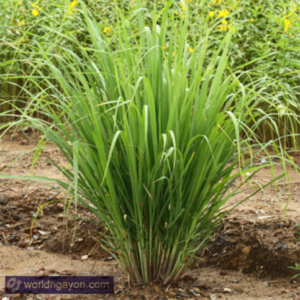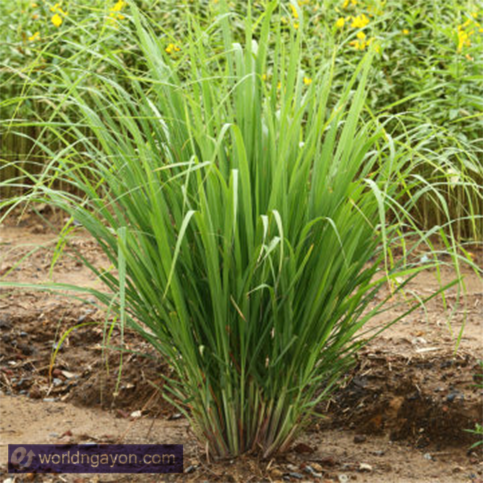“Aside from being an important herb, lemon grass may help repel dengue mosquitoes,” revealed Dr. Manuel Mapue, Department of Health (DOH) Regional Medical Dengue Coordinator for Metro Manila during the Ovicidal/Larvicidal (OL) Mosquito Trap Orientation held in Caloocan City on 28 May 2012.

Lemon grass (Cybopogon citrates) is a perennial herb widely used in Asian cuisine. It is commonly used for teas, soups and curries. In the Philippines lemon grass is called “tanglad” commonly used to savour Filipino delicacies.
In a study Evaluation of Herbal Essential oil against Mosquitoes by the Department of Plant Production Technology and Faculty of Agricultural Technology in Bangkok Thailand affirmed that lemon grass indeed contains organic repellents against mosquitoes.
In a laboratory experiment, volunteers were instructed to apply oil extracts from different target crops including lemon grass on one of their arms, while the other was untreated (control). Both hands were inserted in a cage containing 250 nulliparous female mosquitoes ageing 5-7 day old. Mosquitoes were observed in terms movements and behaviours.
Results showed that oil extracts from lemon grass, peppermint, eucalyptus, citronella, and cloves were effective to repel both dengue and malaria mosquitoes. However, the repellent effects of these oil extracts do not last longer compare to synthetic chemicals, thus, further study to improve its formulation and efficacy is needed.
Another study on “The Effectiveness of Lemon Grass as a Natural Mosquito Repellent” by the University of Southern California (USC), comparing the repellent efficacy of lemon grass extract to the DEET (N,N-diethyl-m-toluamide) based repellents or the leading commercial brands for insect repellents has found that lemon grass extract could be used as an alternative to chemical insect repellent.
Also read:Commercial mosquito repellent lotion may induce allergies, study says
According to the study DEET-based repellents has 81% efficacy compare to 51% efficacy of lemon grass extract. However, the study concluded that although lemon grass has lower efficacy, many people are too sensitive to the DEET chemical used in repellent.
Lemon grass as farm pest repellent
According to Dr. Marilyn Patricio, professor from the Central Luzon State University, lemon grass is being used to repel pests in organic farming as part of the integrated pest management (IPM) strategy in agriculture. “Planting lemon grass as border crop is very effective to prevent the entry of insect pests in the farm. In fact, aside from lemon grass, we also plant peppermint and other aromatic herbs to detract insect pests from destroying the crop,” said Dr. Patricio.
Like farm pests, Dr. Patricio believes that dengue mosquitoes are detracted with the pungent aroma of lemon grass. She also recommends planting lemon grass on backyard, especially near doors and windows to shoo dengue mosquitoes in entering the home.
On the other hand, in an interview with Mr. Ferdinand Salazar, Supervising Science Research Specialist from the Department of Medical Entomology, Research Institute of Tropical Medicine, Department of Health (RITM-DOH) said that, planting lemon grass on backyards could help repel mosquito, however it will not guarantee protection because people are moving around. “Though there is no perfect single approach to control mosquitoes, adding all these plus our eagerness to maintain cleanliness in our surroundings will surely control dengue mosquitoes. Because after all cleanliness will not only spare us from dengue but to other infectious diseases as well.




[…] and already approved flavour agent in food and in wines. According to the study, ethyl pyruvate, is cheaper, safer and more effective than the usual DEET (N-Diethyl-meta-toluamide) that is currently used in […]
[…] You may also read:Lemon grass may help repel dengue mosquitoes […]
Comments are closed.